#Wild Life Conservation
Explore tagged Tumblr posts
Text
The Woman behind the flight of Sinag: The Philippine Eagle
Daily writing promptWhat are you curious about?View all responses What am I curious about? I was so amazed at how the tiktok post of the Filipina – Canadian Lohwana Halaq, an eagle trainer, animal keeper and Primatologist went viral. It shows the headshot of herself and Sinag, the most handsome Philippine Eagle that I have ever seen and she was seen there displaying the Banko Sentral ng…

View On WordPress
#dailyprompt#dailyprompt-2018#endangered species#internet#Lohwana Halaq#Nature#Philippine Eagle#Philippine Eagle Center#Philippine Eagle Conservation#Philippine Eagle Foundation#Philippine Eagle Keeper#Philippines#Sinag the Philippine Eagle#social media#tiktok#viral tiktok#wild life conservation#wildlife#Women in wildlife
5 notes
·
View notes
Text
Zoonosis
In the tapestry of existence, where humans, animals, and the Earth dance in harmony, lies the secret to preventing the shadows that lurk in the form of zoonotic diseases. Listen closely, for the wisdom of the Earth whispers the path to safeguarding the health of all beings. Behold the Understanding of Zoonotic Diseases: Within the labyrinth of life, zoonotic diseases weave their intricate…

View On WordPress
#animal communication#blogchatter A2Z challenge#Disease transmission prevention#Ecobalance#ecologic significance#public health#shamanism#wild life conservation#Zoonotic Disease Prevention
0 notes
Text
Monsoon season is a time of rebirth...
shaazjung
#Karnataka#India#wildlife photography#natgeowild#jungle#conservation#wild life#animals#curators on tumblr
601 notes
·
View notes
Text
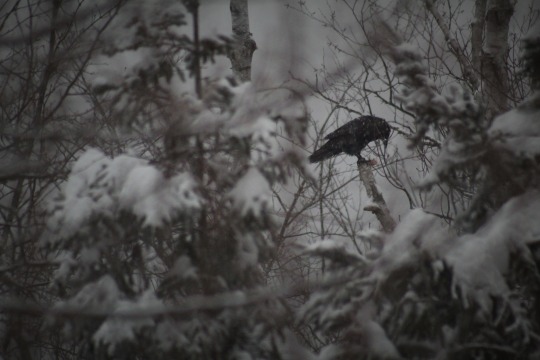
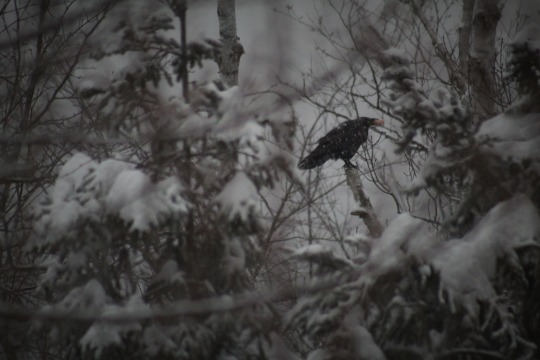
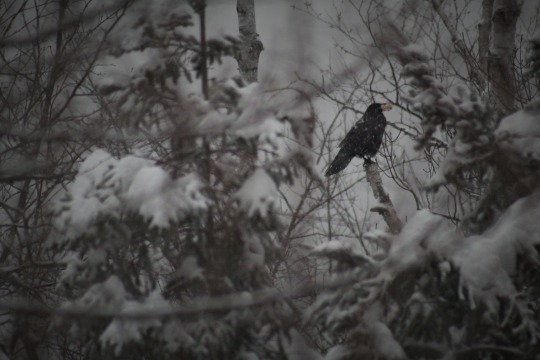
#TheDayAfter
At dawn after a snowstorm, a Raven is about to take off with his breakfast; a chicken leg.
@BenAdrienProulx January 10th, 2024
#The Day After#Northern Raven#Raven#Wild Bird#Wildlife Photography#Raw Nature#Nature Core#Nature Gothic#Chicken Leg#SnowStorm#Nature Photography#Nature Canada#Wild Bird Photography#Animal Photography#Bird Watching#Bird life#Bird Lover#eBirders#IUCN#International Union for Conservation of Nature#NCC#Nature Conservancy of Canada#ECCC#Environment and Climate Change Canada#Mountainous Parts of the Northern Hemisphere#Canada#The RavenKeeper#birds#bird photography#Birders
567 notes
·
View notes
Text
To support climate action we must protect the whales.
I’m always asked which area of marine I would like to go into for a career,
the answer is always and will always be cetacean behaviour and conservation.
Why?
Cetaceans, particularly the great whales, bring stability to our ever-changing climate.
When whales dive into the depths of the ocean, they then return to the surface water to breathe. Upon returning to the surface, whales release enormous faecal plumes, containing limiting but essential nutrients that stimulate the growth of phytoplankton.
Phytoplankton, an organism forming the basis of all, marine food, is essential for life on Earth. These microscopic organisms act as carbon fixers by sequestration carbon from the atmosphere to be utilised in their bodily structures. Reducing the number of phytoplankton is undeniably going to cause higher quantities of greenhouse gas emissions remaining in the atmosphere and as a result warming the climate.
Whales' defecation acts as a natural fertiliser in our oceans and is essential in the growth of phytoplankton thus combatting climate change.
Without whales, phytoplankton numbers will reduce meaning greenhouse gas emissions are no longer removed from the atmosphere through these carbon fixers. This creates an increasingly warmer climate, one uninhabitable and one that will impact ALL life on Earth.
Our future lies in our oceans, particularly baleen whales who store astonishing amounts of carbon throughout their 100-year lives. Even when these individuals die, the carbon remains locked in the dead body for centuries to come.
Whales face many threats.
Whaling and climate change are impacting their populations the most.
We must protect whale populations from the threats we have caused
Not only will it benefit whales, but it will benefit all marine life, terrestrial life and even us, humans.
Whales are not only incredible species but a natural solution to climate change one that deserves to be protected.
#marine biology#cetaceans#marine conservation#marine life#empty the tanks#sea life#student#whales#wild orcas#marine student#orcas#balleen whales#great whales#whaling#stop whaling#climate action#climate disaster#climate change#climate science#climate solutions#climate activism#animal conservation#marine#marine animals
128 notes
·
View notes
Text

"Let tigers live, let nature thrive."
#art#artist#albert sackey art#albertsackeyart#albertayebisackey#life#journal#love#sketchbook#tiger#nature#natural#nature conservation#wildlife#wild#big cat#cat#wild cat#humanity#earth#art journal#journaling#journals#visual journal#motivation#inspiration#scrapbook blog#art blog#art blogger#sketchbook blog
7 notes
·
View notes
Text

🌿✨ Just look at this majestic pachyderm, striding purposefully through its rugged terrain. With ears that act like nature's own satellite dishes, this gentle giant listens to the echoes of the savanna. Those powerful legs are like ancient tree trunks, carrying centuries of wisdom with every step. The trunk, an extraordinary fusion of strength and sensitivity, is both a tool and a lifeline, guiding its way through the world. This magnificent creature is more than just an elephant; it's a living testament to the beauty and resilience of nature. 🌱🌍
#elephant#wildlife#nature#majestic#animal#conservation#wilderness#savanna#gentle giant#pachyderm#nature lover#animal lover#safari#wild life#elephant art
6 notes
·
View notes
Text
If saving nature via a conservation park makes refugees/IDPs out of indigenous people, it isn't real conservation: it some sort of unrealistic fantasy ideal of nature free of human touch. Humans are an important keystone species regardless of how much we like to demonize ourselves as some sort of plague killing the planet.
#why are so many wildlife conservationists enviormental conservationists animal rights activities and climate activists#so fucking anti indigenous#without evene fucking realizing it sometimes#and straight up not caring at others#like the adult who FB bullied an alaskan native teen for helping hunt a whale for his (remote) community#fuck spelling in tags#ive been made aboug this ever since i learned about it#humans are not inherently bad for earth#wild life#conservation#nature#indigenous#refugees#land ownership#wildlife#ecosystem
14 notes
·
View notes
Text

Meet the Harbor Seal! These adorable pinnipeds can dive up to 900 feet deep and hold their breath for up to 30 minutes! They use their whiskers to track fish underwater.
Fun Fact, Unlike sea lions, harbor seals can't rotate their hind flippers, making them less mobile on land.
plus, an extra one I found cute, Unlike sea lions, harbor seals can't rotate their hind flippers, making them less mobile on land.
Comment some fun facts you know about the Harbor seal!
#harbor seal#seal dog#marine mammal#wild life#ocean life#animal facts#fun facts#did you know#cute animals#ocean#conservation#sea creature#nature lover#funny little critters#simple art#illistrator#digital art#art support#cute art#simple animal designs#art#digital artist#cute#illistration#dinosaur
2 notes
·
View notes
Text

The conservation movement was born in loving memory of a good boy
🌲🐺🌲
#history#lobo#wolf#ernest thompson seton#animals#american history#conservation movement#blanco#good boy#new mexico#wild life#wild west#animal history#currumpaw valley#wild animals#united states#naturalist#conservation#animal lover#nature#wild animals i have known#new mexican history#american west#nickys facts
7 notes
·
View notes
Text
Bats and Beyond.
Animal wisdom from the Bats. one of those trips to Manipal and here I was in the bus, knowning I had to sit for the next 6 hrs. and from my window the mangroves are visible. I see these amazing garbage bags swinging like pendulums from the tall tree. Here I am admiring the inguenity of the bags being placed on a tree top…one of the bags enlarges horizontally and begins to float as if it was a…

View On WordPress
#Animal Classification#Animal Medicine#Bats#blogchatterA2Z#Hindu mythology#scientific classifcation#spirituality#wild life conservation#Zoology
0 notes
Text
Spix's Macaw: A Sad Farewell to a Beloved Bird
The Spix’s macaw, the stunning blue bird featured in the movie Rio, is now officially extinct in the wild. This heartbreaking reality resonates with many, as the loss of this iconic bird underscores the serious impact of human actions on nature. Real Spix’s Blue Macaws now extinct Once thriving in the forests of Brazil, the Spix’s macaw was known for its vibrant blue feathers and playful…
#extinction#nature#Biodiversity#blue bird#Brazil#climate action#Conservation#conservation efforts#Deforestation#Endangered Species#Environmental Awareness#Protect Wild life#Rio movie#Save The Species#Spixs &039;Macaw#sustainable future#Wild life Protection
2 notes
·
View notes
Text
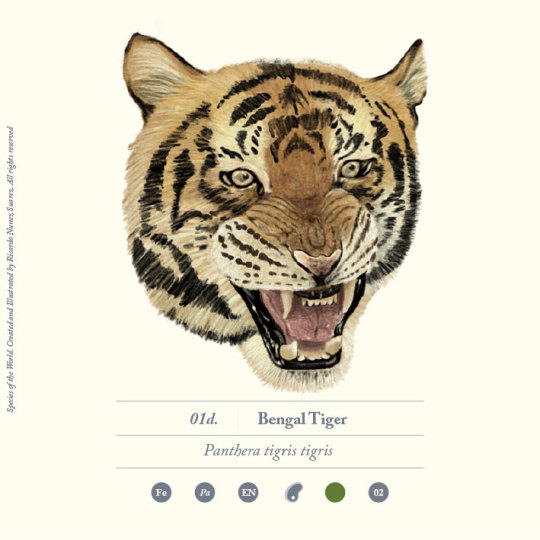
Working on this one took me forever. I’m very happy with the result though because I wanted a pose that portrays the animal with majesty and power.
Bengal Tiger
If you ever saw a tiger, 90% of the chances are that you saw a Bengal Tiger. It is the most famous and probably the one that has inspired us the most. The versatility that the tiger has to propel the imagination of humans is unmeasurable. From a cruel villain to a magnificent god, its charisma and beauty have made us dream for centuries, and are now just part of the whole human culture, regardless of nationality.
It is also the popular white tiger which is nothing but a lack of melanin, the pigment in charge of giving us color. Less popular but equally magnificent and extremely rare is the golden tiger which can be seen just in captivity. A problem! if you ask me because this means that has been humanly altered genetically to get the color. There is also the black tiger, which is not completely black. Its black stripes are thicker making the orange color less visible. However, there are some reports stating that completely black tigers have been spotted in the wild. No photographs have been taken though.
India primordially is its homeland but now it can also be seen more often than in the wild in the backyards of United States homes. __________________________________________________ Credits: Felids and Hyenas of the World: Wildcats, Panthers, Lynx, Pumas, Ocelots, Caracals, and Relatives. Dr. José R. Castelló Bengal Tiger __________________________________________________ Instagram Store Thank you guys for your support! If you like the contact please like and subscribe. Reblog is also very much appreciated. Any comments showing love or even hate are appreciated. Please help me spread the word! Cheers!!
#bengal tiger#tiger#tigre#tigre de bengala#feline#felino#scientific illustration#illo#cute anime drawing#drawing animals#inforgraphics#wild animal#conservation#digital art#artist on tumblr#mammals#wild life#wild animals#science side of tumblr#recently extinct#extinct species#cute animals drawing#cute tiger
86 notes
·
View notes
Text

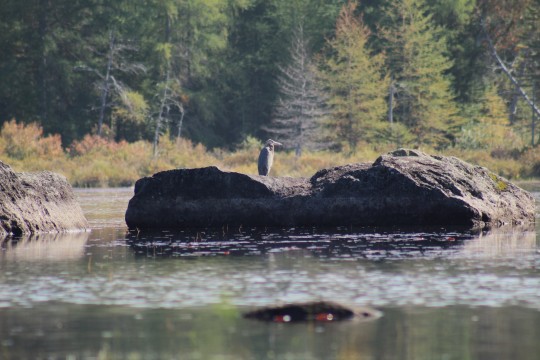
#TheGreatBlueHeron
The Great Blue Herons, after catching a fish, typically do not wait before beginning to digest their meal. And once they've swallowed their prey whole, they start the process of digestion immediately while taking a comfortably nap on a rock, enjoying the sun.
@BenAdrienProulx October 24th, 2023
#The Great Blue Heron#Wild Bird Photography#Wildlife Photography#Bird Watching#Bird life#eBirders#Nature Photography#Nature Canada#IUCN#Raw Nature#NatureCore#International Union for Conservation of Nature#NCC#Nature Conservancy of Canada#FeederWatch#Mountainous Parts of the Northern Hemisphere#Canada#The RavenKeeper#birds#bird photography#Birders
339 notes
·
View notes
Text

Keep your grubby hands off of our state parks‼️
#Protect Florida wildlife#keep florida wild#keep fl state parks wild#florida wildlife#old Florida#florida state parks#5801 print#support Florida state parks#save florida wildlife#save Florida state parks#the real florida#wildlife conservation#Florida wildlife conservation#Florida conservation#protect wildlife#protect wild lands#rustic florida#florida grown#florida life#florida#Florida living#Florida girl#save it don’t pave it#wild Florida
2 notes
·
View notes
Text
youtube
Three species of sea turtles nesting in southeast Florida face a range of manmade threats. Thanks to conservation measures, loggerhead and green sea turtles are recovering, but leatherbacks remain at risk. Researchers know little about this amazing species — and in the battle to save leatherbacks, knowledge is key.
Conservationists are out at dawn every morning, surveying and protecting the nests of all three species to keep them safe from human traffic and rescue any hatchlings stuck inside. Meanwhile, at Florida Atlantic University, a team monitors the health of juvenile green turtles who grow up along the coast, fitting them with ID tags to track their movements and progress.
Florida Atlantic University also has the only lab in the world where scientists study leatherbacks as hatchlings. Unlike the other two species that hug the coast for several years, leatherbacks head right for the open ocean, so FAU scientists are pioneering new ways to learn about the 20-30 years they spend at sea before returning to the beach to nest. Using new, miniaturized satellite tags, they’re hoping to reveal the mysteries of the leatherbacks’ so-called “lost years.”
Learn more about this story and ways that YOU can get involved in saving your local biodiversity by becoming a Wild Hoper:
Follow us:
/ wildhopetv
Join our community: https://wildhope.tv
Get our newsletter: http://eepurl.com/irGMng
Share this with a friend!
#nature on pbs#wild hope#solarpunk#tidalpunk#sea turtle#sea#ocean#sea life#marine life#USA#florida#cost#costal#loggerhead#green sea turtle#leatherback turtle#conservation#open ocean#Florida Atlantic University#Youtube
5 notes
·
View notes